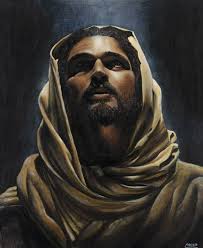Jesus Predicts His Death a Second Time
Matthew 17:22-23; Mark 9:30-32; Luke 9:43b-45
Jesus predicts His death a second time DIG: What does the apostle’s grief show about their expectations? What is the major difference between Jesus’ teaching here and in Mark 8:31b? What is significant about this difference? Why do you think the talmidim were afraid to ask?
REFLECT: When is your quiet time with the Lord? What seems to intrude upon it the most? How can you change that? What are you afraid to ask Messiah about?
After Yeshua threw out the deaf and mute demon (to see link click Gd – Jesus Heals a Demon Possessed Boy) they left that place and passed privately through Galilee. It was no longer possible for Christ to be alone with the Twelve in the region of Caesarea Philippi. The Torah-teachers had found out His retreat and were on hand to battle Him at every turn. Once the crowds learned of the healing of the demon-possessed boy, it made it impossible to have any privacy for further instruction of His apostles.
So, the Chief Shepherd turned His steps once again toward the south, passing through the hills and valleys of Galilee, probably west of the Jordan. This was not for the purpose of pursuing another public Galilean ministry, although His public ministry would end in Jerusalem with a second cleansing of the Temple (see Iv – Jesus Entered the Temple Area and Drove Out All Who Were Buying and Selling). Jesus did not want anyone to know where they were, because He was teaching His apostles (Matthew 17:22a: Mark 9:30-31a). He was focusing His teaching ministry on the Twelve, and He sought seclusion to accomplish this. His talmidim needed to be away from the distractions of the crowds to concentrate on what Yeshua was saying to them. For the second time He makes a clear statement concerning His death and resurrection (see Fy – Jesus Predicts His Death), and for the second time they do not understand what He is talking about.
As Christ was teaching, He reiterated His fate and said to His apostles: Listen carefully to what I AM about to tell you: The Son of Man is going to be betrayed into the hands of men (Matthew 17:22b; Mark 9:31b; Luke 9:43b-44). This second prediction included the new element of betrayal. The verb paradidotai (is going to be betrayed), is a futuristic present. Although the betrayal is still in the future, it’s as good as happening right now. By translating paradidotai as betrayed, it implies that Judas is the subject of the action. The word literally means to be delivered up or to be handed over. 888

They will kill Him. By then there was clearly opposition from many in rabbinic leadership concerning the upstart Messiah. It will not only be some of the Jewish that would turn on Jesus, but ultimately the Roman civil authorities as well. It is well documented that the Sanhedrin had to submit to the Romans in all capital cases. It is unfortunate that some today still believe “the Jews” killed Yeshua. However, it is a matter of history that He was executed on a cross, which was not even part of the Jewish judicial system. In a strange way, it is prophetic that the Suffering Servant would be rejected by His own and turned over to the Gentiles for ultimate execution. Both Jews and Gentiles are represented in His rejection so that He may turn it around and be the Redeemer of all (see my commentary on Exodus Bz –Redemption).889
Despite the apparent setback, there would be good news at the end of the story, as Christ promises that on the third day He will be raised to life (Matthew 17:23a; Mark 9:31c). In spite of this clear statement, the apostles did not understand. The Jews at the time of Christ were confused about prophecies in the TaNaKh concerning Messiah. On the one hand they recognized that the Meshiach was to suffer, but, on the other hand they believed that He would rule in power and glory. These two lines of revelation seemed to be contradictory. Jewish theology sought to harmonize the confusion by teaching the coming of two Messiahs (see Mv – The Jewish Concept of Two Messiahs); one to suffer and die, and the other to reign in power and glory. The apostles were not above accepting this popular theology. Christ had been speaking of a glorious Kingdom in which He would rule Isra’el. Peter, James and John had a vision of that Kingdom and the Lord’s glory in it; thus, their attention was focused on the glory of Messiah’s reign. Like the other Jews of their day, they could not imagine that their beloved Master would have to suffer and die.890
Even the closest talmidim did not comprehend how all these details would fit together. They could not help but be filled with sadness. And the Twelve were filled with grief (Matthew 17:23b) because they did not understand what He meant. Why couldn’t King Messiah march into Jerusalem and establish His throne in their day? Why the suffering? It was hidden from them, so that they did not grasp it, and were afraid to ask Him about it (Mark 9:32; Luke 9:45). Was their fear of asking Jesus about what He had said due to their fear of facing the reality of the suffering that lay ahead? Or was it because before when they had asked about the coming of Elijah, they had not understood Yeshua’s answer? Or were they fearful of being rebuked as Peter had been? But, whatever their reasons, they were afraid to ask Jesus about it.891 Consequently, when His death occurred, it caught them off guard.



Leave A Comment